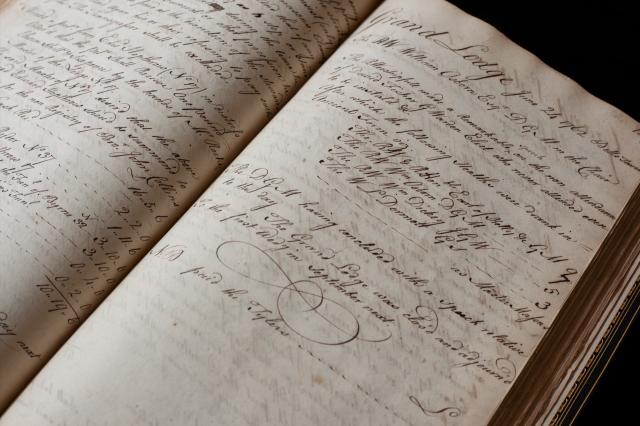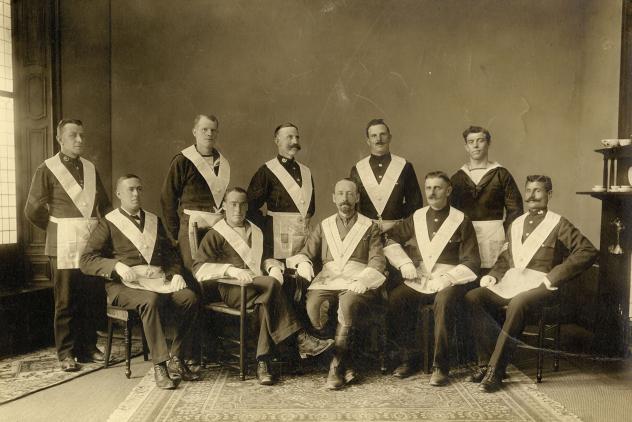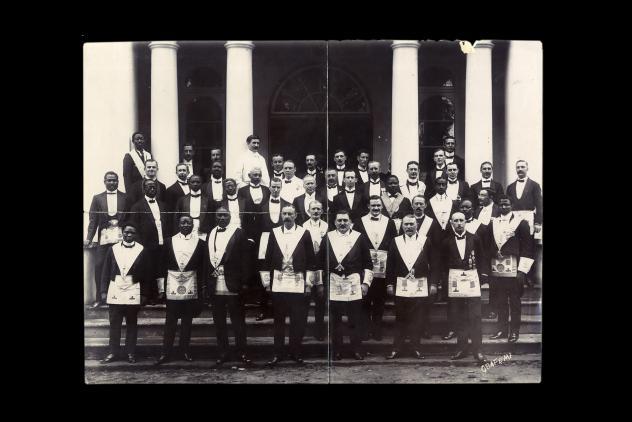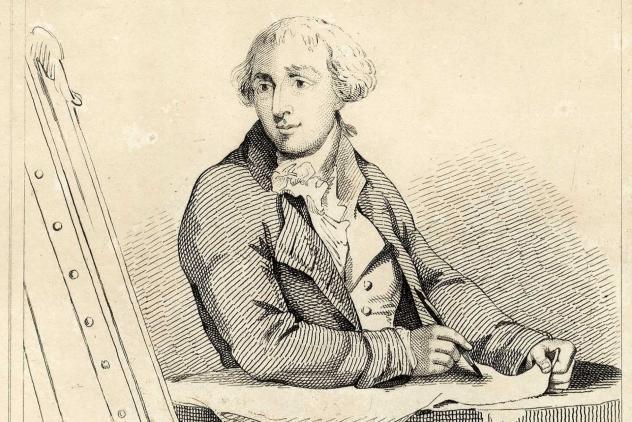If you’re interested in finding out about the history of a masonic lodge or chapter, this guide is for you. Read on to discover what we hold in our archives and how we can help your research.
Where to start
The main sources of historical information when researching the history of a lodge or chapter are the Minute Books. These are usually looked after by the Secretary of the lodge (or Scribe E of the chapter).
In some cases, the Museum of Freemasonry has histories of lodges and chapters that predate the Minute Books, as well as other interesting and useful material. Have a look at our online catalogue to find out what we’ve got on the particular lodge or chapter you’re interested in.
What we have in our collection
The museum has a file for each lodge and chapter, which can you see on request. These files contain things like summonses to meetings and letters.
Other material we have includes:
- Petitions to form new lodges or chapters (for information on the founders)
- Letter books (copies of letters sent by Grand Lodge)
- Correspondence from provinces and districts to Grand Lodge and Grand Chapter
- Annual returns (sent to Grand Lodge/Chapter to compile membership records; these sometimes include additional details about members)
- Provincial and District Year Books
- Photographs and engravings. Our Print Collection may also contain photographs or engravings of members, meeting places and lodges etc. but only a small part of the collection has been catalogued. Let us know what you're interested in and we'll do our best to help.
- Periodicals and newspapers. For much of the 19th and early 20th centuries there were dedicated Masonic magazines which often contain details of lodge meetings, photographs of individuals, biographical information and obituaries. These are particularly good for descriptions of Lodge and Chapter Consecrations.
- Research Lodge transactions and conference proceedings
- Second World War Reports. At the end of the war just over a thousand lodges sent in reports of their wartime activities.
Practical information
Accessing the library and archives
To access anything listed above, you need to register as a researcher. This involves completing a short form and providing identification and proof of address (passport, driving licence or utility bill) when you visit the museum. Once you register you can use the library straightaway, and we’ll send you a reader’s card to use next time you come.
A word of caution
Not all lodges and chapter have historical records. They may have been lost or destroyed over the years. Some archive resources can’t be viewed until their restricted access period has passed (usually 70 years) and others are stored off-site (you might have to pay for us to get them for you). Please look at our catalogue and get in touch to check what we have before you make a visit to the museum.
Other resources
Lane’s list of lodges
Lane’s List of Lodges contains details of all lodges warranted by the United Grand Lodge and its predecessor bodies up to 2010. It also includes details of their dates of warrants and consecration, meeting places and changes of name and number. You can search the list by lodge name, number or location. Find the list on our research resources page.
Masonic periodicals
During the 19th and early 20th centuries, many lodges published magazines, which often contain details of meetings, photographs of members, biographical information and obituaries. Masonic Periodicals Online is an electronic record of English masonic periodicals published between 1790 and 1906. You can access Masonic Periodicals Online via our research resources page.
Lodge Family Trees
Charts showing the relationship between lodges under the United Grand Lodge of England. You can search for the family free of a lodge via our research resources page.
Quatuor Coronati Lodge
Searchable indexes to all volumes and links to online versions of early volumes of the transactions of the famous research lodge are available through their website which can also be accessed via our research resources page.
Lodge and chapter records online
Some lodges have published their own historical material online. You can find these via the usual search engines.




